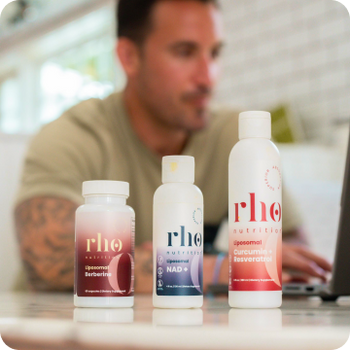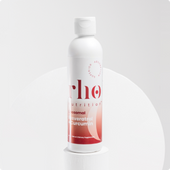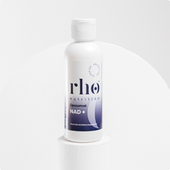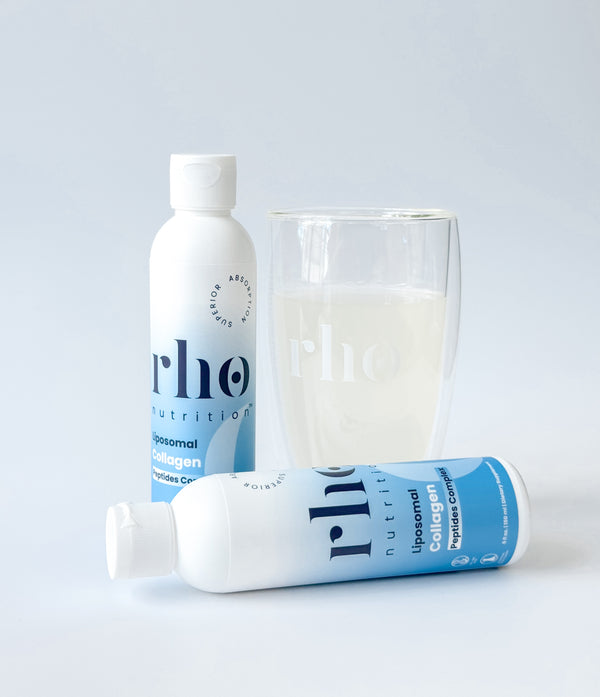Collagen supplements have surged in popularity as more people seek to support their skin health, joint function, and overall wellness. But with this popular protein supplement comes a common question: when exactly should you take it for optimal results? While research shows that consistency matters more than precise timing, certain strategies may offer advantages depending on your specific goals.
Is There Actually a "Best" Time?
The short answer is: there's no scientifically proven "best" time to take collagen that applies to everyone. Current research hasn't definitively shown that taking collagen at one specific time of day produces significantly better results than another. Your body can effectively absorb and utilize collagen peptides throughout the day, and the most important factor for seeing results is taking it consistently over time.
That said, different timing strategies may offer slight advantages based on your individual goals, lifestyle, and how your body responds. The "best" time for you is ultimately the time that allows you to take it consistently while aligning with your specific health objectives.
Understanding Collagen Absorption
Before diving into timing strategies, it's important to understand how your body processes collagen supplements. When you consume collagen, whether in powder, capsule, or liquid form, your digestive system breaks it down into smaller peptides and amino acids. These components are then absorbed through your intestinal wall and distributed throughout your body where they're needed most.
The absorption process typically takes several hours, and your body doesn't dramatically change its absorption efficiency based on the time of day. This biological reality means that consistency in taking your supplement matters far more than hitting a perfect window of opportunity.
Morning: Starting Your Day with Collagen
Taking collagen in the morning has become a popular choice for many people, and it offers several practical advantages. Your stomach is relatively empty after fasting overnight, which some believe may enhance absorption, though research hasn't conclusively proven this provides a significant benefit. The main advantage of morning consumption is that it allows you to establish a consistent routine that's easy to maintain.
Many people find it convenient to add collagen powder to their morning coffee, smoothie, or breakfast. The heat from coffee won't destroy the collagen peptides, contrary to some myths, though extremely high temperatures should be avoided. If you're someone who exercises in the morning, taking collagen beforehand may provide amino acids that support muscle recovery throughout the day.
The morning approach works particularly well if you're taking collagen primarily for skin health and general wellness. Starting your day with this protein can contribute to your daily protein intake and may help with satiety, potentially supporting weight management goals.
Evening: The Nighttime Recovery Approach
There's a compelling case for taking collagen in the evening, particularly if your primary goals involve recovery and repair. Your body does much of its repair work during sleep, including skin cell regeneration and tissue repair. Some proponents suggest that providing your body with collagen peptides before this crucial recovery period may enhance these natural processes, though direct research comparing morning versus evening supplementation is limited.
Taking collagen about an hour before bed, perhaps mixed into herbal tea or warm milk, can become a soothing nighttime ritual. Some people report that the glycine in collagen, an amino acid with calming properties, helps them relax and may support better sleep quality. While research on collagen specifically for sleep is limited, glycine has been studied for its potential sleep-supporting properties.
With or Without Food?
The question of whether to take collagen with food is another consideration. Taking collagen on an empty stomach may theoretically enhance absorption since there's less competition from other proteins and nutrients. However, the difference is likely minimal, and some people experience mild digestive discomfort when taking supplements without food.
If you choose to take collagen with meals, it can easily be incorporated into your regular eating schedule. Adding it to meals may actually help with compliance since you're less likely to forget when it's part of your regular routine. Any slight potential decrease in absorption efficiency is likely offset by the improved consistency of actually taking your supplement daily.
Post-Workout Timing
For those focused on joint health, muscle recovery, or athletic performance, taking collagen after exercise might be beneficial. The post-workout window is when your muscles are primed for nutrient uptake and repair. Combining collagen with vitamin C during this time may be particularly effective, as vitamin C is essential for collagen synthesis in the body.
Some athletes and fitness enthusiasts combine collagen with their post-workout protein shake, getting both fast-absorbing whey protein and the specific amino acids found in collagen. This approach may support both immediate muscle protein synthesis and longer-term connective tissue health.
Special Considerations for Timing
Your individual circumstances should influence your timing decision. If you're taking other supplements or medications, consider potential interactions. For instance, calcium and iron can compete for absorption, so if you're taking these minerals, you might want to separate them from your collagen by a few hours.
People with sensitive stomachs might find that taking collagen with food prevents any digestive upset. Conversely, those practicing intermittent fasting might prefer to take collagen during their eating window to maintain their fasting state during specified hours.
The type of collagen supplement you're using also matters. Liquid collagen might be absorbed more quickly than powders or pills, potentially making timing less critical. Hydrolyzed collagen peptides, which are already broken down into smaller molecules, are generally well-absorbed regardless of timing.
The Evidence-Based Bottom Line
While supplement companies may promote specific timing protocols, the scientific evidence doesn't support one definitively superior time to take collagen. Studies showing benefits from collagen supplementation have used various timing protocols, and successful results have been achieved with morning, evening, and mealtime supplementation.
The most important factors for seeing results from collagen supplements are:
-
Taking it consistently every day
-
Using an adequate dose (typically 2.5-15 grams daily, depending on your goals)
-
Allowing sufficient time for results (at least 8-12 weeks)
-
Supporting collagen synthesis with adequate vitamin C, protein, and hydration
Making Your Decision
Since there's no universally "best" time, choose based on what works for your lifestyle and goals. If you're primarily interested in skin health and want something easy to remember, morning might work well. If recovery and sleep are priorities, evening could be ideal. If you're focused on athletic performance, post-workout timing makes sense.
The best approach is to experiment with different timing strategies for a few weeks each to see what feels best for your body and schedule. Pay attention to factors like digestive comfort, ease of maintaining the routine, and any subjective benefits you notice.
Remember that collagen supplements are just one piece of the puzzle. Adequate protein intake, vitamin C consumption, proper hydration, sun protection, and overall healthy lifestyle habits all play crucial roles in supporting your body's collagen production and maintenance.
Ultimately, the "best" time to take collagen is the time that ensures you'll take it consistently. Whether you choose morning, evening, or any time in between, regular daily supplementation is what will contribute most to achieving your health and wellness goals. Choose a time that fits seamlessly into your lifestyle, stick with it, and give your body the time it needs to respond to this beneficial protein supplement.
FDA Disclaimer: These statements have not been evaluated by the Food and Drug Administration. This information is not intended to diagnose, treat, cure, or prevent any disease.













Leave a comment